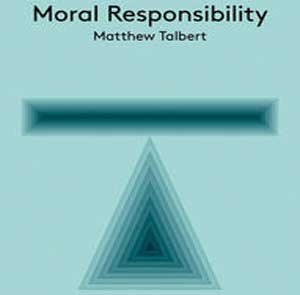That’s just one of the questions Matthew Talbert, associate professor and chair of the Department of Philosophy at West Virginia University, asks in his new book, “Moral Responsibility: An Introduction.”
The book discusses the philosophical debates surrounding moral responsibility, and is part of Polity’s ‘Key Concepts in Philosophy,’ a series of concise books introducing the core concepts in philosophy.
Moral responsibility is something that most people understand to some degree, but Talbert said that the common understanding of moral responsibility is different than that of a philosopher.
When people have conversations about moral responsibility, they often refer to the duties someone has as a parent or an employee, Talbert said. Philosophers, on the other hand, refer to moral responsibility as the relationship that a person has with their actions.
In his book, Talbert discusses moral responsibility from the philosopher’s perspective, and focuses on several criteria that have been proposed as requirements for moral responsibility. These requirements include having control over one’s actions (or having free will), and having awareness of the moral status and the consequences of one’s actions.
While most of the book is based on the main aspects of moral responsibility, Talbert also incorporates many personal beliefs into the chapters, such as the argument that control over our actions and the understanding that actions have consequences is heavily influenced by luck.

















Related Items
Co-education blues, chatting charades and the great panic attacks
Invisible bacteria get a free ride in Delhi air
Modi government failed to eliminate inequality in education